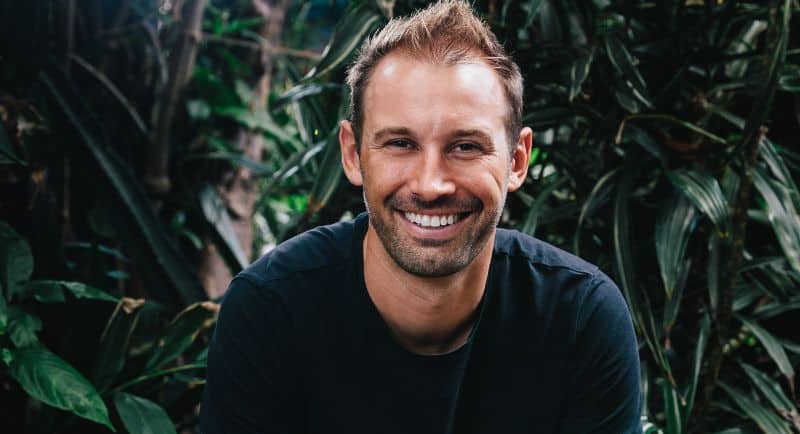By Dave Levett, managing director, Murmur Group
Nearly two decades ago the world of marketing fundamentally shifted. 2007 brought a quantum shift in consumer behaviour as Apple – a brand historically known for its portable music players – launched its first mobile phone. iPhone’s launch was a key milestone in the ‘mobile revolution’ beckoning in the smartphone era and transforming how people communicate, access information and engage with digital content.
And without doubt 2024 will bring another dramatic shift in consumer behaviour – as the exponential growth of AI powers a game-changing move from traditional “Search Engines” to the rise of “Answer Engines”.
As this shift takes hold, some brands will find themselves at a crossroads, forced to reconsider marketing strategies and redefine key marketing metrics.
And with the metamorphosis underway, it is crucial for brands to comprehend the significant impacts looming on the horizon.
1. Search is fundamentally changing
‘Zero click searches’ already make up a large portion of search queries as Users continue to look for desired results.
Recent studies have shown more than 50% of customers don’t click an organic or paid result. If what consumers are looking for isn’t in the first few results of a Search Engine Results Page (SERP), Users quickly revert to the top of the page – and type in a new search query, to try and refine the answers.
However, with the recent – and rapid – take-up of AI-fuelled “Large Language Models” (LLM’s), such as ChatGPT and Bard, Users are getting their answers faster, without having to use multiple Search queries, or click through to various links.
2. Adoption of LLM’s is growing
Earlier this year, the impact on LLM’s for traditional Search Engines like Google, and Microsoft saw them start to incorporate a ‘Generative AI’ layer into the overall search experience.
Google launched this in the US with an experiment called ‘SGE’ (Search Generative Experience) – which summarises and provides personalised context to a User’s query by using highly ranked index pages.
The impact of Google’s SGE-powered results page, lead to providing far less space for organic search results – prioritising Paid Ads, and SGE results above Organic results.
Google will protect its key revenue source – Paid Search – but if your brand isn’t paying for Search Ads, it will be bumped down the page – replaced with SGE results. And the bottom of the page is not where you want your brand to be.
Brands will see a decline in Organic Traffic coming from Google as an increasing number of results will be zero click. Meaning, they need to supplement this loss of organic traffic, through another source – likely to be ‘paid search’.
3. The price of doing business for ‘search’ will increase
As brands invest more in Search Ads to drive demand the competitive marketplace will inflate and the cost of doing business for ‘paid search’ will increase.
As Byron Sharp recently noted “Paid search is like shelf space” – and if the price of Search increases, there will be an increasing number of brands that “close the doors of the store”.
To help reduce the impact of rising search costs, brands need to transform their organic content strategies from an “SEO focus” to an “AEO (Answer Engine Optimisation) focus”.
To maximise AEO, brands should structure organic content, snippets and most importantly, providing direct answers to common consumer questions about your category will be crucial for LLM’s to pick up and show to a User.
Brands must use formatting techniques to deliver content that is concise and presented in a clear and organised manner.
4. Marketing metrics will radically change
For many years, “Search” has been commonly thought of as one element of ‘physical availability’ – the determination of how easy it is for consumers to find and buy a brand in a practical sense.
Thanks to the work of Les Binet & James Hankins “Share of Search” (showing which brands are gaining more of today’s buyers through organic listings) has been used by brands and marketers, as a proxy marketing metric to understand current market share and forecast future sales activity.
However, once organic results are pushed further and further down a Search Results Page, the ‘physical availability’ for these brands will dramatically reduce and consequently, impacting negatively on a brand’s ability to sell.
As the price of doing business increases and puts pressure on marketing budgets, brands must be prepared to make tough decisions on which channels deliver effective results against objectives; which channels remain in plan; and which channels should be sacrificed.
As the dynamics of consumer behaviour shifts, the way people find products, and search for services or solutions will also change.
I predict 2024 will be the year that the rise of Answer Engine Optimisation (AEO) takes centre stage due to a dramatic reduction in ‘zero-click searches’.
For brands and marketers, the implications will be profound – affecting budgets and planning, altering search behaviour, reshaping organic traffic and the surge in the cost of ‘paid search.’
It’s imperative that brands and marketers start to build out both their AEO strategy as well as their SEO strategy as we move headlong into 2024.
–
Top image: Dave Levett
